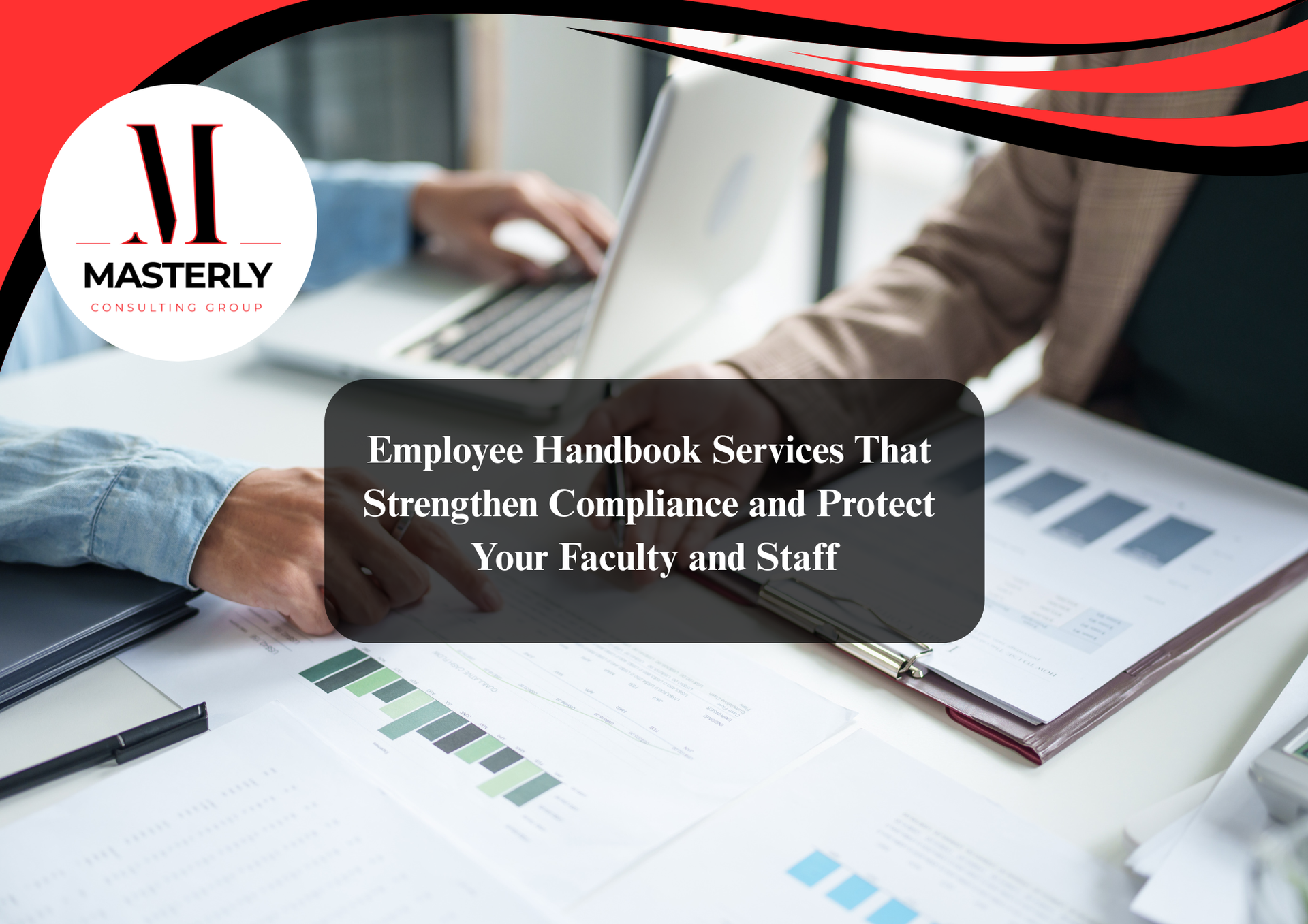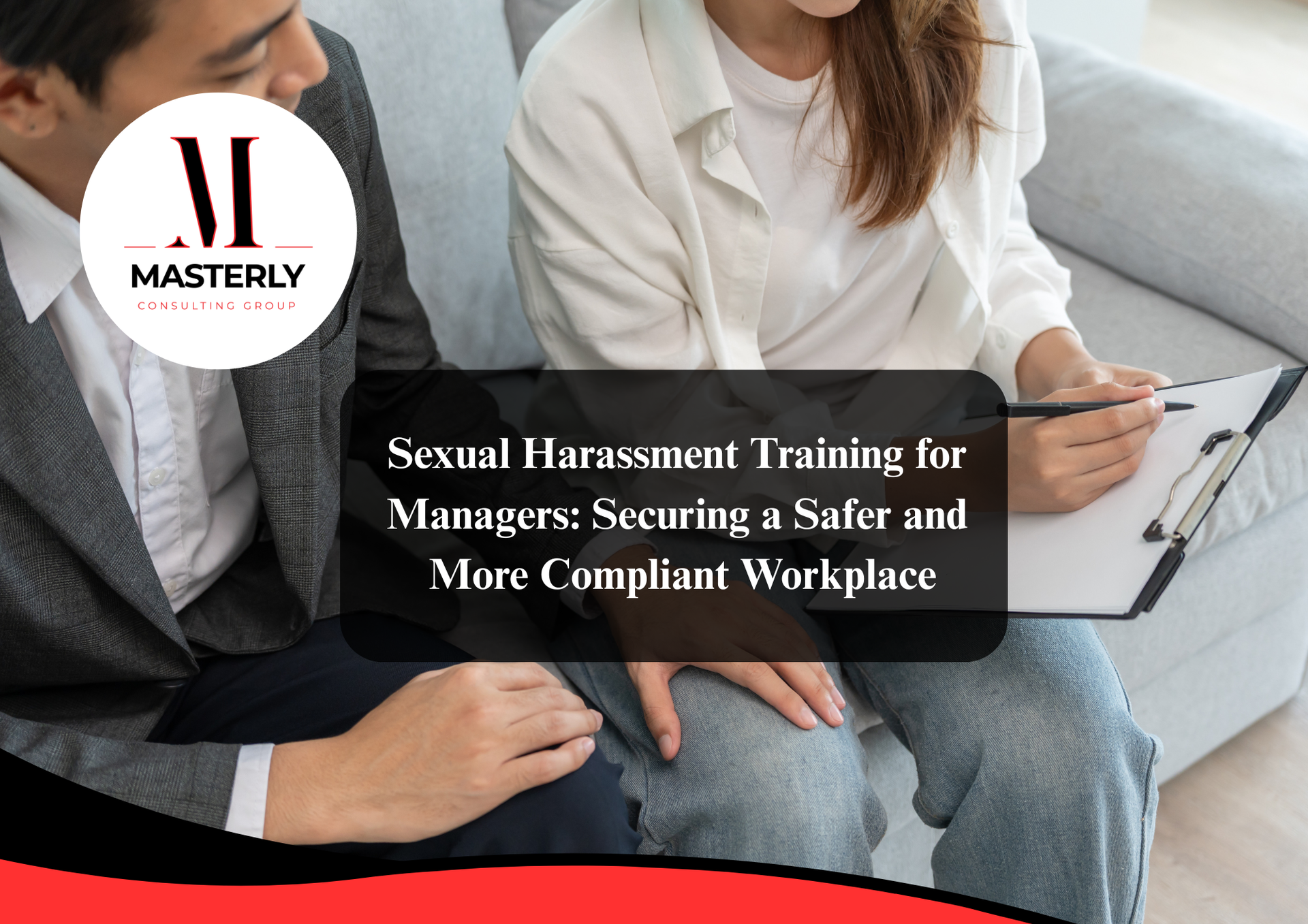Sexual Harassment Training for Employees: A Must-Have for HR Compliance in Schools
Sexual harassment remains a major concern in educational institutions, making sexual harassment training a crucial part of maintaining a safe and compliant workplace. Schools and universities must ensure that all employees receive proper harassment training to prevent misconduct, protect staff and students, and adhere to state law and federal regulations.
Implementing a strong sexual harassment prevention training program is not only a legal obligation but also a proactive step in fostering a respectful work environment. By providing workplace harassment prevention training, HR teams can minimize legal risks, strengthen institutional policies, and promote an inclusive school culture.
The Importance of Sexual Harassment Training for Schools
Educational institutions have a responsibility to train employees on how to recognize, report, and respond to workplace harassment. Without clear training requirements, schools risk legal liabilities and reputational damage.
Key reasons schools must prioritize sexual harassment training include:
- Compliance with Federal and State Laws – Laws such as Title VII, the Civil Rights Act, and various state law provisions require schools to provide harassment prevention training to all employees.
- Preventing Sexual Harassment in the Workplace – Training equips staff with the knowledge to identify what constitutes harassment, including conduct that includes sexual harassment and other forms of misconduct.
- Building a Culture of Respect and Inclusion – Schools benefit from a positive workplace culture that promotes respect and safety for both staff and students.
- Reducing Legal and Financial Risks – Schools can avoid costly lawsuits and penalties by ensuring compliance with state's requirements and training requirements set by regulatory bodies.
Legal Requirements for Sexual Harassment Training in Schools
Many states have specific training requirements for employers in the education sector. Understanding these obligations is key to maintaining compliance and avoiding legal repercussions.
Federal Laws Governing Harassment Training
At the federal level, sexual harassment training requirements are guided by the Equal Employment Opportunity Commission (EEOC) and Title VII of the Civil Rights Act. These laws mandate that schools take active steps in preventing sexual harassment and provide clear policies for reporting and addressing complaints.
State-Specific Training Requirements
Several states, including New York State, Illinois, and California, require annual training on harassment in the workplace. For example:
- Illinois Human Rights Act (IHRA) – Mandates that Illinois employers, including schools, provide annual training to all staff, including non-supervisory employees.
- New York State Law – Requires all employees working in the state to complete online sexual harassment training that meets minimum standards set by the state.
- California's SB 1343 (Formerly Senate Bill) – Requires two hours of workplace harassment training for supervisors and at least one hour for all other staff.
Understanding your state's requirements ensures that your school remains compliant and proactive in harassment prevention training.
Key Components of Effective Sexual Harassment Training
A comprehensive sexual harassment training program should cover the following key concepts to ensure effectiveness:
1. Defining What Constitutes Harassment
Employees must be educated on what constitutes harassment, including behaviors that include sexual harassment, verbal abuse, inappropriate jokes, and physical misconduct.
2. Legal Rights and Responsibilities
Training should outline the legal protections under federal and state law, including the rights of victims and the obligations of schools to address complaints.
3. Reporting Procedures and Conflict Resolution
Clear guidelines on reporting unlawful harassment should be included, along with conflict resolution strategies to address incidents professionally and fairly.
4. Workplace Culture and Inclusion Training
Creating an inclusive and respectful work environment requires education on diversity, discrimination, and harassment training that promotes positive behaviors.
5. Compliance and Enforcement
Schools must ensure that training aligns with model training provided by the state and meets the state's requirements for education institutions.
In-Person vs. Online Sexual Harassment Training for Employees
Schools can choose between in-person or online training for their staff. Each method has its benefits:
- In-Person Training – Allows interactive discussions, role-playing exercises, and Q&A sessions with dental SEO experts in harassment prevention.
- Online Sexual Harassment Training – Provides flexible learning options for employees who need to complete training on their own schedules.
A combination of both can ensure employees receive the most effective harassment prevention training while maintaining engagement and understanding.

The Role of HR in Sexual Harassment Prevention Training
HR departments play a critical role in sexual harassment training by implementing policies, tracking training content, and ensuring all employees complete harassment training on an annual basis.
HR’s Responsibilities Include:
- Developing a Comprehensive Sexual Harassment Prevention Policy – Establish clear guidelines on what constitutes harassment and how employees should report incidents.
- Providing Training That Meets Legal Standards – Ensuring that all employers comply with state law and training requirements for education institutions.
- Tracking and Enforcing Compliance – Schools must keep records of course completion and monitor employees who require supplemental training.
Eliminating Sexual Harassment in Schools Through Training
A strong harassment training program helps eliminate sexual harassment by ensuring that all employees understand their roles in maintaining a safe work and learning environment.
Ways to Strengthen Sexual Harassment Prevention:
- Provide Training that is relevant to the educational environment.
- Train Employees regularly to ensure compliance with state law.
- Educate Employees on acceptable behaviors and the importance of respect in the workplace.
- Use Model Training Provided by recognized organizations to ensure legal compliance.
By integrating harassment prevention training into school policies, educational institutions can actively work toward preventing sexual harassment and fostering a culture of respect and safety.
Implementing Sexual Harassment Training for Employees: Ensuring Compliance and a Safe Workplace
Educational institutions must implement sexual harassment training for employees that meets federal and state regulations to create a secure and respectful learning environment. Schools can benefit from IDHR’s supplemental training model, which provides structured guidance to ensure compliance with workplace training laws. Institutions with three or more employees must adhere to legal training requirements, ensuring that both managers and new employees understand their roles in preventing workplace misconduct.
HR departments should integrate own supplemental training materials tailored to their institution’s organizational culture, addressing specific concerns such as discrimination based on national origin or gender. Schools operating in Illinois must comply with public act provisions that apply to all workplaces, including Illinois restaurants and educational institutions. To meet legal deadlines, schools should schedule training within required business days of an employee's start date and provide technical support for online and remote training accessibility. By prioritizing such training, schools can create a proactive approach to harassment prevention and ensure long-term compliance.
Get Expert Guidance on Sexual Harassment Training for Your School
Ensuring that your school complies with sexual harassment training requirements is not just about meeting legal obligations—it’s about protecting your staff, students, and institution from harm. The Masterly Consulting Group specializes in sexual harassment prevention training, offering both in-person and online training tailored for educational institutions.
Our experts will help you develop a sexual harassment prevention policy, provide legally compliant harassment training, and equip your HR team with the tools to foster a safe and respectful work environment.
Don’t wait until an incident occurs—proactively educate employees and strengthen your school’s workplace harassment prevention training today. Contact us at (888) 209-4055 to book a free consultation and learn how we can customize a training program for your institution.








